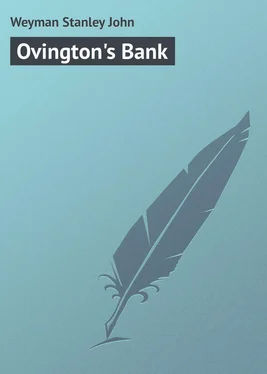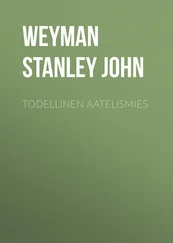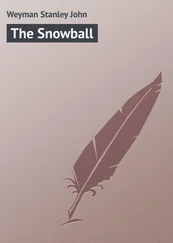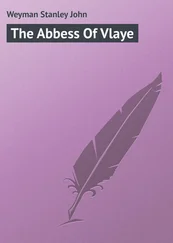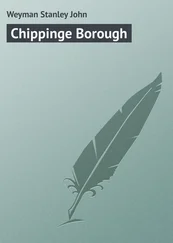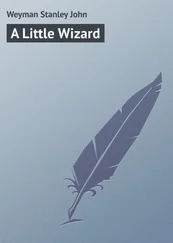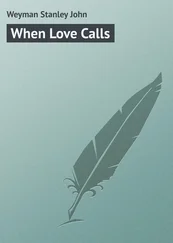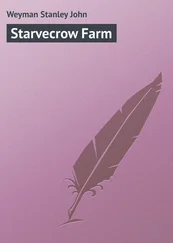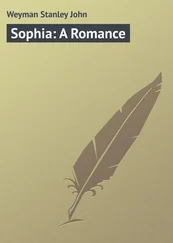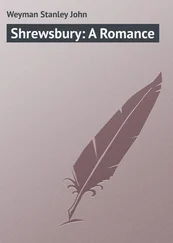Stanley Weyman - Ovington's Bank
Здесь есть возможность читать онлайн «Stanley Weyman - Ovington's Bank» — ознакомительный отрывок электронной книги совершенно бесплатно, а после прочтения отрывка купить полную версию. В некоторых случаях можно слушать аудио, скачать через торрент в формате fb2 и присутствует краткое содержание. Издательство: Иностранный паблик, Жанр: foreign_language, foreign_prose, на английском языке. Описание произведения, (предисловие) а так же отзывы посетителей доступны на портале библиотеки ЛибКат.
- Название:Ovington's Bank
- Автор:
- Издательство:Иностранный паблик
- Жанр:
- Год:неизвестен
- ISBN:нет данных
- Рейтинг книги:5 / 5. Голосов: 1
-
Избранное:Добавить в избранное
- Отзывы:
-
Ваша оценка:
- 100
- 1
- 2
- 3
- 4
- 5
Ovington's Bank: краткое содержание, описание и аннотация
Предлагаем к чтению аннотацию, описание, краткое содержание или предисловие (зависит от того, что написал сам автор книги «Ovington's Bank»). Если вы не нашли необходимую информацию о книге — напишите в комментариях, мы постараемся отыскать её.
Ovington's Bank — читать онлайн ознакомительный отрывок
Ниже представлен текст книги, разбитый по страницам. Система сохранения места последней прочитанной страницы, позволяет с удобством читать онлайн бесплатно книгу «Ovington's Bank», без необходимости каждый раз заново искать на чём Вы остановились. Поставьте закладку, и сможете в любой момент перейти на страницу, на которой закончили чтение.
Интервал:
Закладка:
"Pish!" said the Squire.
"Very good. Then with your permission I will seek my horse."
The old man turned to the window and opened it. "Thomas," he shouted violently. "Mr. Ovington's horse."
When he turned again. "Perhaps you may still think better of it," Ovington said. He had regained command of himself. "I ought to have mentioned that your nephew has consented to act as Secretary to the Company."
"The more fool he!" the Squire snarled. "My nephew! What the devil is he doing in your Company? Or for the matter of that in your bank either?"
"I think he sees more clearly than you that times are changed."
"Ay," the old man retorted, full of wrath, and well aware that the other had found a joint in his armor. "And he had best have a care that these fine times don't lead him into trouble!"
"I hope not, I hope not. Good-day, Mr. Griffin. I can find my way out. Don't let me trouble you."
"I will see you out, if you please. After you, sir." Then, with an effort which cost him much, but which he thought was due to his position, "You are sure that you will take nothing?"
"Nothing, I thank you."
The Squire saw his visitor to the door; but he did not stay to see him ride away. He went back to his room and to a side window at which it was his custom to spend much time. It looked over the narrow vale, little more than a glen, which the eminence, on which the house stood, cut off from the main valley. It looked on its green slopes, on the fern-fringed brook that babbled and tossed in its bottom, on the black and white mill that spanned the stream, and on the Thirty Acre covert that clothed the farther side and climbed to the foot of the great limestone wall that towered alike above house and glen and rose itself to the knees of the boundary hills. And looking on all this, the Squire in fancy saw the railroad scoring and smirching and spoiling his beloved acres. It was nothing to him, that in fact the railroad would pass up the middle of the broad vale behind him-he ignored that. He saw the hated thing sweep by below him, a long black ugly snake, spewing smoke and steam over the green meadows, fouling the waters, darkening the air.
"Not in my time, by G-d!" he muttered, his knees quivering a little under him-for he was an aging man and the scene had tried him. "Not in my time!" And at the thought that he, the owner of all, hill and vale, within his sight, and the descendant of generations of owners-that he had been threatened by this upstart, this loan-monger, this town-bred creature of a day, he swore with fresh vigor.
He had at any rate the fires of indignation to warm him, and the satisfaction of knowing that he had spoken his mind and had not had the worst of the bout. But the banker's feelings as he jogged homewards on his hackney were not so happy. In spite of Bourdillon's warning he had been confident that he would gain his end. He had fancied that he knew his man and could manage him. He had believed that the golden lure would not fail. But it had failed, and the old man's gibes accompanied him, and like barbed arrows clung to his memory and poisoned his content.
It was not the worst that he must return and own that Arthur had been wiser than he; that he must inform his colleagues that his embassy had failed. Worse than either was the hurt to his pride. Certain things that the Squire had said about money-making, his sneer about the difference in breeding, his warning that the banker might yet find that he had been too clever-these had pricked him to the quick, and the last had even caused him a pang of uneasiness. And then the Squire had shown so clearly the gulf that in his eyes lay between them!
Ay, it was that which rankled: the knowledge, sharply brought home to him, that no matter what his success, no matter what his wealth, nor how the common herd bowed down to him, this man and his like would ever hold themselves above him, would always look down on him. The fence about them he could not cross. Add thousands to thousands as he might, and though he conquered Lombard Street, these men would not admit him of their number. They would ever hold him at arm's length, would deal out to him a cold politeness. He could never be of them.
As a rule Ovington was too big a man to harbor spite, but as he rode and fumed, a plan which he had already considered put on a new aspect, and by and by his brow relaxed and he smote his thigh. Something tickled him and he laughed. He thought that he saw a way to avenge himself and to annoy his enemy, and by the time he reached the bank he was himself again. Indeed, he had not been human if he had not by that time owned that whatever Garth thought of him he was something in Aldersbury.
Three times men stopped him, one crossing the street to intercept him, one running bare-headed from a shop, a third seizing his rein. And all three sought favors, or craved advice, all, as they retreated, did so, eyed askance by those who lacked their courage or their impudence.
For the tide of speculation was still rising in the country, and even in Aldersbury had reached many a back-parlor where the old stocking or the money-box was scarcely out of date. Thousands sold their Three per cents., and the proceeds had to go somewhere, and other proceeds, for behind all there was real prosperity. Men's money poured first into a higher and then into a lower grade of security and raised each in turn, so that fortunes were made with astonishing speed. The banks gave extended credit; everything rose. Many who had bought in fear found that they had cleared a profit before they had had time to tremble. They sold, and still there were others to take their place. It seemed as if all had only to buy and to sell and to grow rich. Only the very cautious stood aside, and one by one even these slid tempted into the stream.
The more venturesome hazarded their money afar, buying shares in steamship companies in the West Indies, in diamond mines in Brazil, or in cattle companies in Mexico. The more prudent preferred undertakings which they could see and which their limited horizon could compass, and to these such a local scheme as the Valleys Railroad held out a tempting bait. They knew nothing about a railroad, but they knew that steam had been applied to ocean travel, and they knew Aldersbury and the woollen district. Here was something the growth and progress of which they could watch, and which once begun could not vanish in a night.
Then the silence of those within and the rumors spread without added to its attractions. Each man felt that his neighbor was stealing a march upon him, and that if he were not quick he would not get in on equal terms.
One of Ovington's waylayers wished to know if the limit at which he had been advised to sell his stock was likely to be reached. "I sold on Saturday," the banker answered, "two pounds above your limit, Davies. The money will be in the bank in a week." He spoke with Napoleonic curtness, and rode on, leaving the man, amazed and jubilant, to calculate his gains.
The next wanted advice. He had a hundred in hand if Mr. Ovington would not think it too small. "Call to-morrow-no, Thursday," Ovington said, hardly looking at him. "I'll see you then."
The third ran bare-headed out of a shop. He was a man of more weight, Purslow the big draper on Bride Hill, who had been twice Mayor of Aldersbury; a tradesman, bald and sleek, whom fortune had raised so rapidly that old subservience was continually at odds with new importance. "Just a word, Mr. Ovington," he stuttered, "a word, sir, by your leave? I'm a good customer." He had not laid aside his black apron but merely twisted it round his waist, a sure sign, in these days of his greatness, that he was flustered.
The banker nodded. "None better, Purslow," he answered. "What is it?"
"What I says, then-excuse me-is, if Grounds, why not me? Why not me, sir?"
Читать дальшеИнтервал:
Закладка:
Похожие книги на «Ovington's Bank»
Представляем Вашему вниманию похожие книги на «Ovington's Bank» списком для выбора. Мы отобрали схожую по названию и смыслу литературу в надежде предоставить читателям больше вариантов отыскать новые, интересные, ещё непрочитанные произведения.
Обсуждение, отзывы о книге «Ovington's Bank» и просто собственные мнения читателей. Оставьте ваши комментарии, напишите, что Вы думаете о произведении, его смысле или главных героях. Укажите что конкретно понравилось, а что нет, и почему Вы так считаете.
